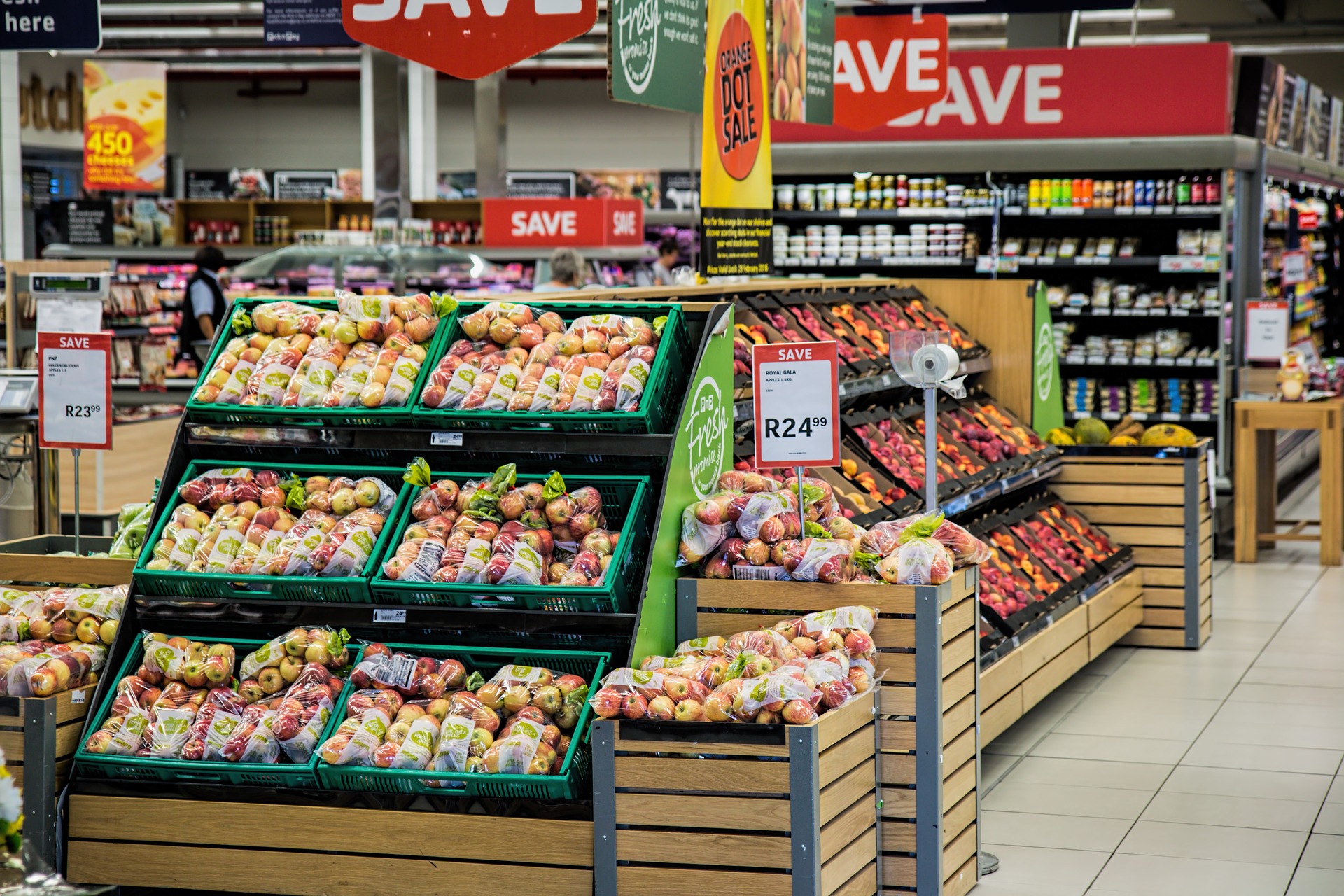
Financial Independence: Why I Focus On Cash Flow More Than Budgeting
In my first article about my journey to financial independence (FI), I described learning to track all of my earning, saving, and spending at a young age thanks to my parents. In a journal, I recorded everything coming in and going out. I was learning to track my cash flow, even though I didn’t know the term back then! This thoughtful exercise has been a huge part of my three guiding principles to reaching FI. I continue to focus on cash flow rather than budgeting since I’ve reached FI, as well. Here are the primary reasons why!
Disclaimer: My preference to focus on cash flow rather than budgeting has worked for my situation. Everyone’s individual considerations and situations differ, and budgeting is a more effective tool for many. Always do your own independent research and determine what works best for you!

Our Monthly Spending Varies Widely
While we thrive on cutting costs and keeping our overall expenses low, any given month’s overall outflow can greatly differ from the previous one. How? A few reasons:
- Groceries: Our grocery purchases aren’t on a strict, consistent schedule monthly. For instance, we might have three large trips one month, and one moderate trip the next month.
- Taxes: We pay quarterly estimated taxes to the IRS and our state, so that throws off our outflow a bit every third month.
- Insurance: For our car and homeowner’s insurance, we pay the entire premiums twice and once each year, respectively, to keep our rates down. Consequently, those significant expenses throw off monthly spending.
- Surprises: While we have generally planned for unexpected home repairs, their unpredictable nature can be an anomaly in our monthly spending.
I know that some mitigate the above in a budget by broadly determining an annual spend number and dividing by 12 to get a monthly amount. For us, however, that unnecessarily clouds the numbers, and it creates more work to reconcile planned versus actual spending in a budget. Long story short, it’s just simpler for us to add in those aperiodic expenses to our cash flow when they actually happen.
Consistently Sensible Spending Decisions
For years, we have underscored deliberate, thoughtful spending choices on a day to day basis. We have found by consistently paying attention to our spending decisions, our monthly spending take cares of itself, in a sense. In other words, since we are constantly attuned to our spending on a micro basis, the macro (monthly) amount of spending hasn’t gotten out of control over time.
Of course, others who don’t pay as close attention to ongoing spending throughout a month (we are all different) may do better with a budget. Also, while I consider it an extreme method that I haven’t done (nor will I ever), the Dave Ramsey envelope system is popular with many for a reason.

Avoiding a Sense of Deprivation
While we’re fairly disciplined on a day to day basis with spending, the idea of having a hard limit in any given month to what we can spend is a bit draconian for us. Perhaps it’s a mental game I play, as I may overanalyze purchases from time to time. But I never want to be put in a situation of “absolutely no way can I go over budget.” Indeed, I may end up missing out on a spontaneous, once-in-a-lifetime experience if I had already met a budget limit in a given month. Instead, I balance my sensible spending mantra with a bit of seize the day every now and then.

When I Focus On Cash Flow, I Resist Complacency
Where do budget numbers come from, anyway? Many are based on the habits we already have. The grocery bill has been about this much, so it should continue to be that much, right? I’ve paid this much for cable in the past, so that’s my cable budget. And one might feel good for not going over those budget numbers.
If I kept budget numbers, I would be concerned about being lulled into a state of spending complacency. In reality, though, I can decrease the vast majority of my spending in different ways throughout the year. Tracking cash flow rather than a strict budget encourages me to find new cost-cutting alternatives.
I’m Not Buying a Jet Ski
Mom taught me to have a small amount of “mad money” set aside for a bit of frivolous spending. Perhaps this in itself is a “budget” for those items/activities. Regardless, while I spend money in that fashion, it’s a relatively low amount. The toys/stuff never get out of hand for our situation.
In this life season, our biggest “toy” is travel. For the layperson, that would be a huge expense. But thanks to points and miles, we largely zero out our expenses with our travel lifestyle.
Focus on Cash Flow – Conclusion
I keep track of all money coming in and going out throughout the month, and that works great for us. Some months we end up spending a bit more, others a lot less. Over the long term, coupled with our FI guiding principles, we’re able to keep expenses low while enjoying the journey. Do you keep track of cash flow or do you budget? Why?



Another great article, Benjy! I’m in a similar situation with expenses all over the place in a given month. I use a cash flow model to make sure we’re on track and have several buckets (fake or future transactions in quicken) to represent what’s left in our “budget”. Just starting on my FI journey, it has been difficult for me to figure out my “expenses” to enter into the traditional FI models I’ve found (like Mad Fientist’s). So my FI model is based more on cash flow as well (if that makes sense). Anyway, I enjoy reading about your FI lifestyle. Thanks again for sharing!
MattyB,
Thanks for reading and the kind words! There are definitely a ton of FI resources out there. It’s great to take the info you value from those and combine it with your own personal strategies. Everyone’s journey is different, and that makes it exciting!
Hi Guys,
Thanks for the article! Helps me explain to others how I budget. I think it is relevant to your blog as well, because we are all looking for ways to travel more and that starts by being free from a job to do that. 🙂 Would love to hear your story of FI.
Gib,
Thanks for reading. If you’d like to read more about my FI story, start here, then here.
Totally agree with your way to handle expenses. Like you, I manage and watch my monthly cash flow, practice making “Consistently Sensible Spending Decisions”, and keep track of my monthly liquid net worth. If my liquid (cash, stocks, and highly liquid investments) net worth consistently rises each month then I know I am doing fine. I have consistently, my entire life lived below my means.
Because of this, I have acheived FI and just keep track of my liquid net worth growth and don’t pay much attention anymore to my monthly expenses because my expenses are way below my income and I continue to practice making “Sensible Spending Decisions”. Its easy to grow your net worth if what you spend is only around 30-40% of what you bring in each month.
Jason,
Thanks for sharing!
Hi Benjy, how is your article related to milestomemories? Don’t get me wrong. I am interested in FI but I don’t think this blog is the right place.
Mohammad,
Shawn has previously stated that he has covered personal finance among a variety of topics since the beginning. In addition to points, miles, and travel topics, Shawn has asked that I write about personal finance and FI for Miles To Memories.
Mohammad,
As Benjy said we have always touched on finance topics since the beginning of Miles to Memories. Without a solid financial foundation you are not able to take advantage of miles, points and everything that comes along with it. It is a topic people find of interest so we have been trying to mix it in more and more. Benjy is someone that has gone through Financial Independence and we are lucky enough that he is willing to share what he learned along the way. I would take advantage and enjoy the ride. Especially if you are actually interested in FI like you said.